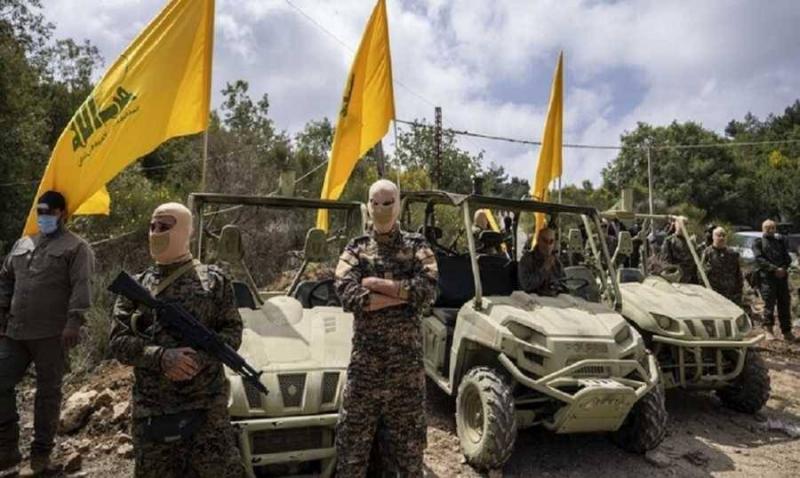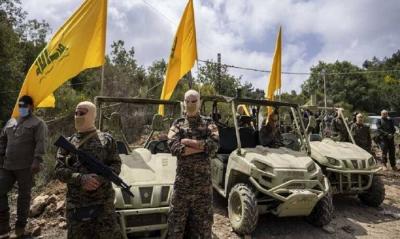The vast majority of Lebanese prefer to sit in political waiting rooms, cautiously anticipating Hezbollah's initiative to deliver a calculated and serious blow to Israel in retaliation for its assassination of the party's leading military figure, Fouad Shukr, in the strategic security depth of the party in the heart of the southern suburb of Beirut. As Secretary-General Hassan Nasrallah stated, he maintains the right to choose the suitable timing in a way that does not expand the war, leaving the final decision to the battlefield to determine if the blow will coincide with Iran's response to Israel's assassination of Hamas political bureau chief Ismail Haniya in its own capital, Tehran. The same goes for the Houthis in Yemen in response to their bombing of the port of Hodeida, according to "Asharq Al-Awsat."
Despite Nasrallah not asking Syria and Iran to intervene in the fighting, given the internal political circumstances faced by the Syrian regime, some of his opponents and certain allies suggest he was not obliged to provide excuses for justifying the avoidance of engaging in confrontation, thus confirming the unity of the arenas that forces belonging to the axis of resistance are supposed to align under to prevent Israel from isolating one party without the other responding to support it.
The political team aligned with the resistance axis attempts to justify Nasrallah's failure to request Syrian intervention by arguing that there is currently no interest in entangling Syria in confrontation and that it is necessary to temporarily neutralize it as it serves as the logistical lifeline from which Hezbollah draws its needs to continue supporting Hamas in its resistance against the Israeli aggression.
This same team points out that Nasrallah's address to his audience and supporters on the anniversary of Shukr's assassination was characterized by realism and did not contain threats to Israel of an expanded war, as much as it promised to target it with a calculated strike proportional to the loss suffered by the party. They argue that in his address, he even acknowledged Israel's achievement in assassinating Shukr and Haniya. They assert that he aimed to maintain his audience at the highest state of readiness and alertness to respond to the Israeli retaliation following a military strike that is intended to be more painful for Israel than the assassination of Shukr, expecting it to be greater than a traditional response yet less than an escalation into war.
Conversely, some sympathizers with Hezbollah from outside the resistance axis, as well as opposition members, believe that Nasrallah was not required to create excuses and mitigative reasons for the Syrian regime to justify not entering the fighting. They question why he refrained from equating the Lebanese situation with the internal conditions in Syria when those are harsher for the Lebanese, especially in light of the inability to elect a president as a basis for restoring order to constitutional institutions and forming an active government to halt the decline of state administrations and institutions towards dissolution, except for those in the security and military sectors still responsible for maintaining stability and preventing security deterioration.
They emphasize that Lebanon is suffering from budget deficits, declining growth rates, and a failure to meet conditions set by international financial institutions, which exceeds the circumstances faced by Syria and necessitates serious engagement to gradually navigate Lebanon to safety.
They ask: Did Nasrallah's request for Syria not to intervene in the fighting come in response to a Russian suggestion conveyed to the party through open communication channels with Moscow? Or is it due to Damascus's focus on arranging its Arab and international situations, with European countries preparing to reverse their decision to boycott the Syrian regime, necessitating non-involvement on a large scale unless confrontation escalated into a wider war? Is Iran, with the election of reformist Masoud Bezhadkian as president, hesitant to respond to the assassination of Haniya without dismissing it? Where does Moscow stand on all these considerations?
It seems that neither Iran nor Hezbollah has an option but to retaliate against Israel for the assassinations of Haniya and Shukr, as they need to compensate for this loss with a strike that restores their prestige, unless communications lead to an opening in the deadlock, restoring value to active efforts to cease fire in Gaza, which would prevent military confrontation on multiple fronts in favor of a diplomatic solution.
Therefore, the race intensifies between reviving mediation efforts to favor a diplomatic solution over dragging the region into a regional war, provided it culminates with a ceasefire in Gaza that allows for reaching an agreement to calm the situation in the south, especially since diplomatic mediation between the parties, whether direct or through intermediaries, has started to intensify, with American sponsorship involving the relevant combatants, and its outcomes remain contingent on final results, according to "Asharq Al-Awsat."




